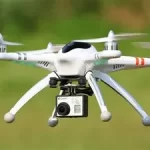A class action lawsuit against Oracle Corporation for violating state and federal privacy laws by asssembling digital dossiers on people and selling them was settled for $115 million dollars. OP member Mike Katz-Lacabe was a primary named plaintiff.

Oracle assembled profiles on where people browsed online, and where they did their banking, bought gas, dined out, shopped and used their credit cards and then used the data in IDGraph which created “relevant personalized experiences”. Oracle has since discontinued IDGraph.
As part of the settlement, Oracle agreed to not to gather user-generated information from URLs of previously visited websites, or text that users enter in online forms other than on Oracle’s own websites.
The settlement covers people whose personal information Oracle collected or sold since Aug. 19, 2018.
News Coverage
Reuters: Oracle Reaches 115 Million Consumer Privacy Settlement
The Register: Oracle Coughs Up 115 Million Dollars To Make Privacy Case Go Away
Bloomberg: Oracle Will Pay 115 Million Dollars to Settle Customer Tracking Lawsuit
PPC Land: Oracle’s 115 Million Privacy Settlement Reshapes Data Collection Landscape





